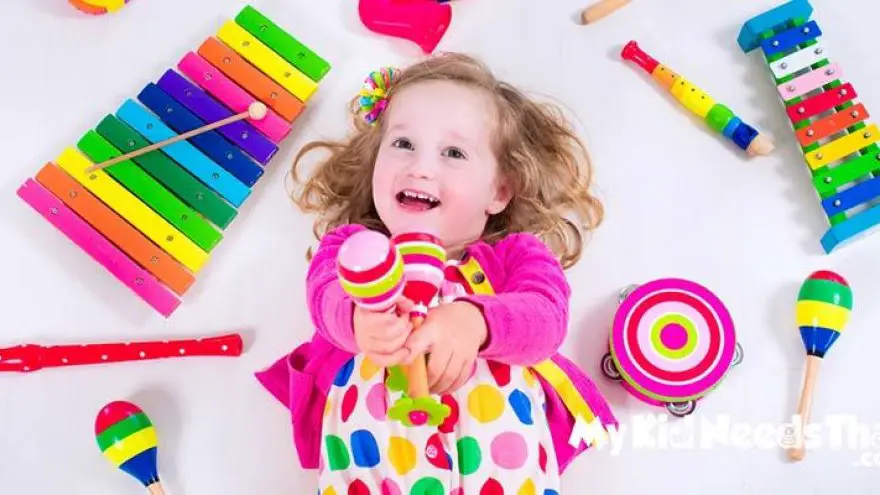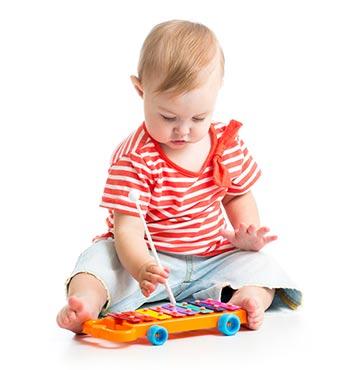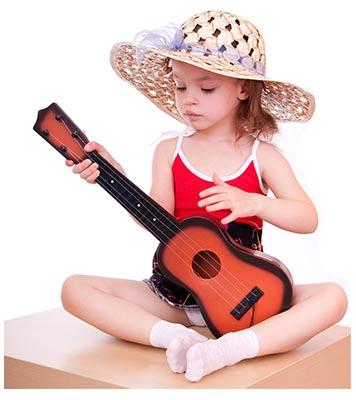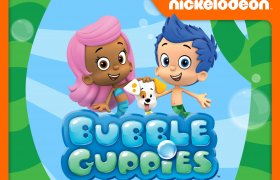10 Huge Benefits Of Musical Toys For Kids

Music: The Essence Of Life
Music is the language that brings people together. No matter what part of the world you come from, what your beliefs are, and what your background is, the rhythm and melodies of music can bring everyone together.
Studies show that listening to music has been shown to be one of the keys to fetal brain development. Fetuses who were exposed to classical music in the latter stages of their development were observed to grow and develop more advanced than children who were not exposed to music while they were still in their mothers’ wombs. If music already has so many benefits on the unborn child, what more to a child who is alive and able to really experience and appreciate the many joys of music?
It is for this reason that child development psychologists always recommend getting a musical toy, especially for babies and toddlers. This is that crucial stage in their lives when their brains are still developing. Whatever input you have will ultimately spell the success, or failure, of their growth and development in the following years.
 Here are 10 incredible benefits of musical toys for kids:
Here are 10 incredible benefits of musical toys for kids:
1. Helps Boost Cognitive Skills
There are a lot of researches that have been made on the benefits of music on the development of the cognitive skills of children. While the exact mechanisms have yet to be identified, it is believed that music mimics the patterns and rhythms of life itself. These rhythms are ultimately imprinted in the brain. A more definitive description is that music can help stimulate beneficial brain activity. It helps neurons become more efficient at transmitting signals which, over time, can lead to the faster and more efficient processing of information. This is the hallmark of cognitive processes. Neurons must be able to communicate among each other in order to facilitate the transfer and processing of information. This, in turn, helps in boosting your child’s intelligence.
Studies show that babies and toddlers who are exposed to music tend to be more advanced than their peers in terms of learning skills, critical and logical thinking skills, and problem-solving skills. In fact, melodies are the very first pieces of information that are processed by the young brain long before it learns about letters, numbers, shapes, and colors. And what better way to introduce music to babies and toddlers than through musical toys that provide fun classical music?
2. Enhances their Memory
Memory is one component of cognitive development that can be enhanced by musical toys. Music has been shown to improve memory storage, processing, and recall of children who are exposed to classical music. Fetuses exposed to music have been shown to have excellent memory recall when they grow up. Again, while the exact mechanism is not fully understood, it is believed that neuronal development can be enhanced by listening to music even though the child is still in his or her mom’s womb. The melodies get imprinted into the limbic system of the brain. These collection of nervous tissues are responsible for the storage and processing of memory and these reside deep in the core of the brain.
Children remember the tunes or melodies their mothers used to hum while they were still babies. Ask them if they remember the first word their parents whispered to them and, more often than not, they will tell you they don’t recall anymore. Many college students use music to help them study better. Some use the lyrics of a song as a mnemonic device. And it really works. Such is the power of music in enhancing one’s memory.
3. Promotes Healthier Social Skills
Babies listening to music learn to associate the melodies with the people who are taking care of them. This helps them learn to associate those people – their parents and other caregivers – with pleasurable experiences. This is the foundation for healthier social relationships. And if your baby keeps on getting exposed to music well into his or her toddlerhood, this can further strengthen his or her social skills through associative and cooperative play.
Toddlers can play a band together with his or her friends. He or she can play the kiddie drums or the play guitar while other kids will be playing other toy musical instruments. This helps young children discover that other people are more important than the things they possess.
 4. Enhances their Emotional Wellbeing
4. Enhances their Emotional Wellbeing
Music can also play an important role in developing and enhancing the emotional well-being of babies and toddlers. When they listen to music they feel calmer and they become more attuned with their feelings. When they play musical toys, they release pent-up energies to feel good about themselves as well. This is particularly true for toddlers as they tend to get easily frustrated at things.
It is not so much as they don’t like something but they get frustrated because they don’t know how to verbalize their feelings. When they play music, they tend to express whatever it is they have in their minds.
5. Provides Continuous Learning
The one thing that is constant in life is change. And with that, children must learn the value of continuous improvement, of continuous learning. They may be listening to music now but that doesn’t mean it’s all there is. Next, they will try to learn playing an instrument they are interested in. Next thing you know, they could very well be composing their very own musical masterpieces. They may not appreciate it now but their brains are integrating all of these information. This lays the foundation for the child’s innate curiosity to learn more about the things around him or her.
6. Reinforces Language Skills
Melodies about the alphabet, shapes, number, and colors can help very young children learn and develop their language skills. The lyrics of children’s songs can help them expand their vocabulary and stimulate their curiosity about the meaning of these words. In a way, it is a very important aspect of cognitive skill development but one that is often overlooked by parents.
The more varied the children’s songs the young child is exposed to, the better are his or her language skills and the more expansive is his or her vocabulary. This also helps them communicate their thoughts and feelings a lot better.
7. Teaches Patience
While very young children may not really appreciate the value of patience, the patterns of learning music is imprinted in the young child’s brain. This helps the older toddler to learn that it takes time for him or her to master playing a musical instrument. It is however, very important that we are able to guide and support them in understanding this particular trait.
Many child developmental psychologists advise the introduction of the concept of waiting time especially in taking turns. This can be very beneficial to teach among children playing with a single musical toy.
 8. Fosters Creativity
8. Fosters Creativity
The notes created when children strike their toy piano keys, strum their guitar strings, or beat their play snare drums can help stimulate the curiosity of very young children. Remember that toddlers are little explorers. This means that they are not necessarily content on the recommended use of a particular toy.
They would like to know what else they can do with such objects. The same is true with musical toys. They know that it can play a particular song but they also would like to know if they can create their own. Toy guitars, pianos, xylophones, trumpets, and even drums can help children express their creative talents.
9. Develops Gross and Fine Motor Skills
It takes dexterity to strum guitar strings and excellent hand-feet-and-eye coordination to beat the snare drums and cymbals. Young children need to learn how to properly hold the musical toy to create music. Playing the drums, for example, require proper handling of the drum sticks.
Playing the guitar also require holding of the guitar neck. Additionally, it requires coordination of their limbs. Drumming requires both hands to beat alternately. Piano playing requires striking the correct keys which is dependent on hand-eye coordination. Of course, when they play as a band, the mere fact that they will be supporting their bodies either sitting down or standing up requires excellent control of the muscles.
10. Promotes Restful Sleep and Relaxation
Among young babies, lullabies and other soft and mellow music can help rock them to sleep. This can be very beneficial to their overall development as studies show sleep is that period of the day when all of the body’s physiologic processes are enhanced. At the same time, the soothing effect of music on babies can help make them feel relaxed and less anxious.
Isn’t it that if your baby cries you just carry him or her and try to soothe him or her using your calm voice? And they respond very well, right? Music has the same calming effect especially among very young infants. Alongside musical toys, there are some great resources on Youtube as well to help younger children sleep. Check out these classical songs for bedtime:
Music is essential for optimum child growth and development. Whether they are listening to it or actively playing it, children tend to grow and develop a lot faster with music in their lives. It is for this reason that musical toys are essential to the overall wellbeing of babies and toddlers.









